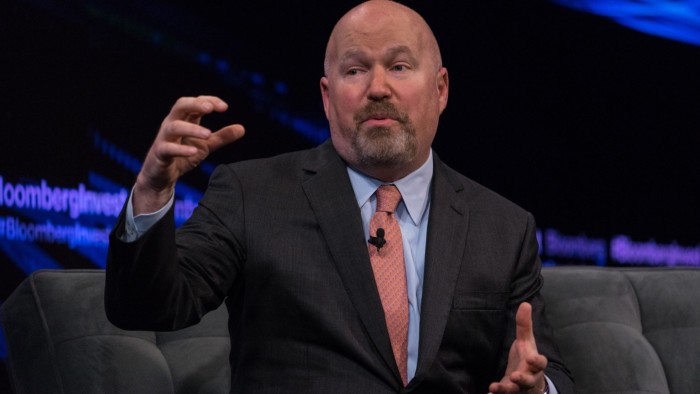Unlock the Editor’s Digest for free
Roula Khalaf, Editor of the FT, selects her favourite stories in this weekly newsletter.
Quant group AQR Capital Management is embracing artificial intelligence and machine learning techniques for trading decisions, ending years of reticence from one of the sector’s historic holdouts.
The Connecticut-based hedge fund that has $136bn under management, has “surrendered more to the machines” after years of experiments, its founder Cliff Asness told the Financial Times.
“When you turn yourself over to the machine you obviously let data speak more,” he said.
All quantitative hedge funds — including Two Sigma, Man Group’s AHL division and Sir David Harding’s Winton — use computing power and algorithms to filter vast amounts of data and then employ sophisticated models to make investing decisions.
But AQR has previously been hesitant about removing humans from trading decisions, instead favouring rules-based computer models developed by humans to target explainable market patterns.
Despite first investing in broad-based machine learning technology in 2018, AQR has only more recently expanded the strategy beyond stocks to other asset classes, and is now using the technology to determine the weightings given to different factors in a portfolio at any time.
The fund also now uses machine-learning algorithms to identify market patterns on which to place bets, even if in some cases it is not entirely clear why those patterns have developed. However, the firm says that in most cases it is able to find an economic rationale for the trades.
While the shift has improved returns, a full-throated embrace of machine learning can have drawbacks during periods of poor performance, since it is hard to explain to panicked investors what is going wrong.
Asness said embracing machine learning made the firm a “cloudy and complicated box” rather than a “black box”. However he acknowledged: “It’s been easier that this has been a very good period for us after a very bad period. Odds are it will be a little harder to explain [to investors] in a bad period, but we think it’s clearly worth it.”
Returns have improved significantly since the “quant winter” of 2018 to 2020. AQR’s assets dropped from $226bn to an eventual low of about $98bn in 2023, during a period in which a number of investment factors performed poorly.
“What drives me most is revenge upon my enemies,” Asness joked. “I want to show the world that we were right and that we can do even better. I have a chip on my shoulder about it.”
The group’s top hedge fund strategies have performed well over the past five years, with the multi-strategy Apex fund and equity strategy Delphi delivering annualised net returns of 19 per cent and 14.6 per cent, respectively as of the end of May, according to a person familiar with the figures.
But other alternative investment strategies have attracted Asness’s ire, including the private equity industry, which he said had “deceived, usually wilfully”, big institutional investors such as pension funds with the promise of high and stable returns, “and God forbid retail is now adding it to their portfolios too”.
The illiquidity and irregular valuation of private equity portfolios allowed executives to falsely claim that returns were more stable than those of public markets, he said.
“There’s a lot of BS out there,” he said. “The ability to not report returns . . . is a feature you pay for, which bids up prices and lowers returns.”
Asness said the reporting gap was convenient for investors who wanted to avoid having their portfolios marked down during public market downturns, but did not mean that private equity companies matched up to a perception of high returns and low risk.
As private equity groups have struggled to offload portfolio companies — and institutional investors and endowments have become increasingly reluctant to commit new capital to the funds — buyout companies have sought out retail investors as a new source of capital.
Asness said the higher liquidity and more frequent valuations of the so-called evergreen funds into which retail investors have poured money could shatter the low risk “illusion”, however.
Democratising access to private assets “in this world means they give retail a worse deal than the already tough deal that they give institutional investors”, Asness said.
